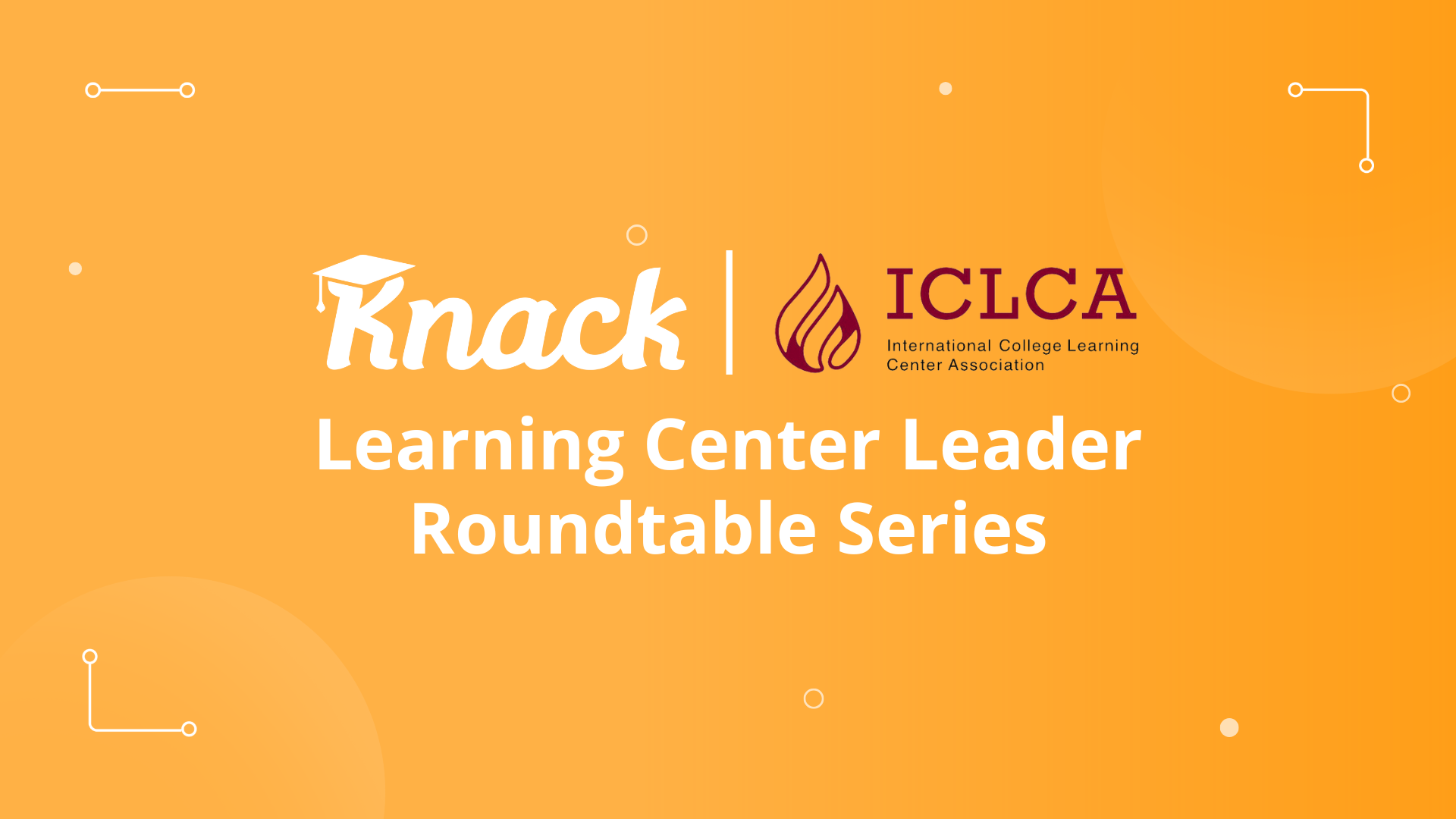As the 2024–2025 academic year winds down, we’re also marking a full year of the ICLCA/Knack Learning Center Leader Roundtable Series—an initiative designed to bring campus leaders together for candid, practical conversations about the future of academic support. What started as a space to share ideas and challenges has evolved into something more: a trusted community of professionals navigating complexity with creativity, care, and a student-first mindset.
In a recent roundtable, we were joined by Joe Salvatore (University of Michigan), Jenn Kepka (Lane Community College), and Sydney Sloan (New College of Florida), who offered an honest look at what’s changing on their campuses—and what they’re trying in response. Here are some of the themes and lessons that continue to shape this work:
1. Physical spaces send a message—and they’re changing for the better
One thing that stood out in this conversation was the way campuses are rethinking their learning environments. At Michigan, Salvatore shared how their center swapped out a traditional front desk for a more welcoming, wheelchair-accessible layout and incorporated art from a local Detroit artist to reflect the community they serve. Sloan spoke about transforming the New College space with comfortable seating, a coffee bar, and extended hours that better fit students’ lives. Kepka described how Lane CC embedded food support directly into their tutoring spaces to meet students' basic needs and encourage them to stick around longer.
These small changes go a long way. They say, “You’re welcome here. Stay awhile.”
“Students want to come in, make a cup of coffee at our coffee bar, and sit down in between their classes and relax.”
- Sydney Sloan
2. AI is evolving fast—and support centers are building the plane while flying it
AI continues to be a hot topic on campus. From academic integrity concerns to the growing demand for personalized support, institutions are working to figure out how AI fits into their support models. Sloan outlined a thoughtful three-step process her team is using to guide faculty and students when questions arise around AI usage. Meanwhile, Salvatore shared that Michigan is developing its own “Wolverine Learning Assistant”—a proprietary AI tool designed to support students in real-time.
These early efforts raise important questions about oversight, accuracy, and access—but they also show that learning centers are stepping up to lead these conversations rather than waiting on top-down decisions.
“The need for the work hasn’t gone away. If we're really committed to students and helping students, it’s important that we find ways to continue to support them. I’m confident that we can continue to do this work—we might just need to learn how to do it a little bit differently than we have over the last, you know, 5 to 10 years.”
- Joe Salvatore
3. When budgets tighten, priorities get sharper
Unsurprisingly, budget constraints remain top of mind for many campuses. But instead of pulling back entirely, learning center leaders are getting creative. Kepka spoke about simplifying events, like opting for pizza over premium catering. Salvatore noted that cross-departmental collaboration has helped stretch resources and build stronger networks of support. Across the board, panelists emphasized the importance of focusing on what matters most—and finding new ways to deliver on that.
It’s not about doing more with less. It’s about doing what matters with intention.
4. Student expectations are shifting—and support services are rising to meet them
From weekend availability to online appointments and drop-in services, learning centers are expanding access in ways that reflect how students actually live and learn today. Sloan described how New College integrated study hall into athletics programming to better support student-athletes, while Kepka talked about Lane CC’s hybrid model, which allows students to access help both in person and online. Flexibility, personalization, and presence are becoming the new standards.
“We’re learning how to acknowledge what students are carrying while helping them stay focused on the work in front of them.”
- Jenn Kepka
Twelve months in, this roundtable series continues to deliver what we hoped it would: a place for real conversations among people doing the work. There’s no script for how academic support should evolve—but by coming together regularly, leaders are building something stronger than a playbook: a practice of shared learning.
We’re grateful to everyone who has participated this past year and look forward to what the next chapter brings.
To receive invitations to participate in this roundtable series, send Page an email.
